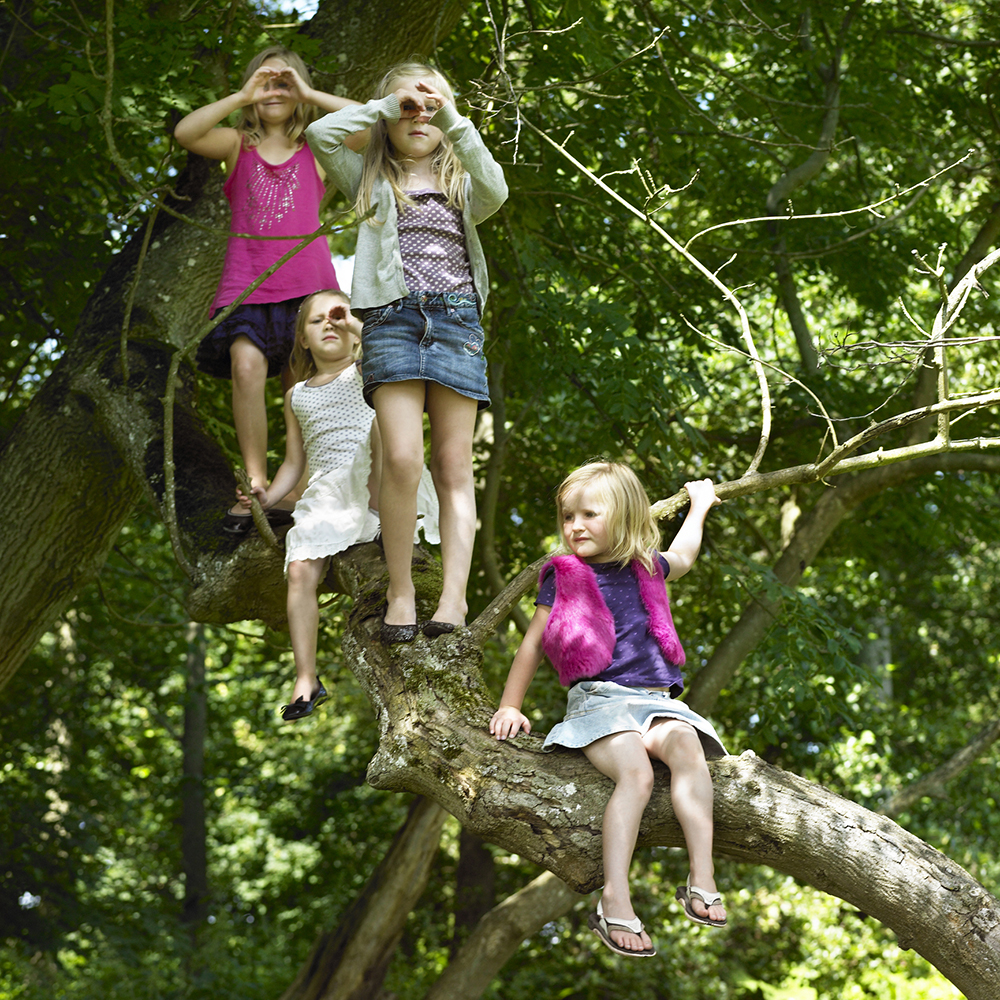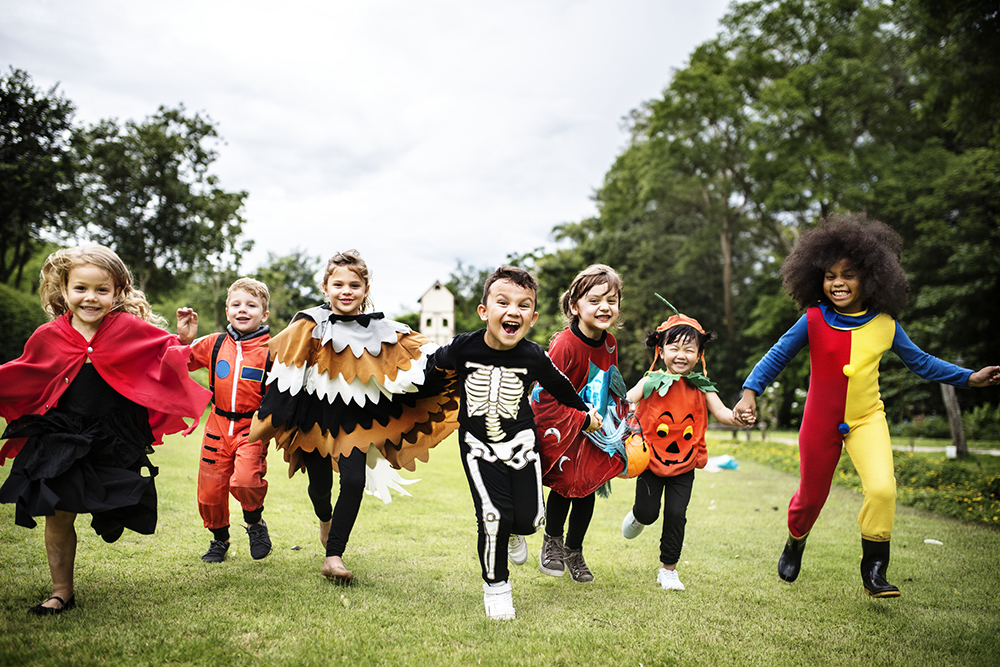The benefits of playing outdoors
Play is important and to be valued wherever it takes place, but there are some very specific benefits to playing outdoors, in all weathers and in a variety of environments. You can’t experience the wind blowing your home-made kite when you are indoors, nor splash in puddles or roll down hills. It’s rare that you would also have the space to run around vigorously shouting at the top of your lungs, or kicking a ball as hard as you can.
Whether playing in a natural space with grass and trees, or in the ‘built environment’, the opportunity to use your body and limbs in vigorous physical activity is maximised outdoors. This is vital for the development of large gross motor skills, which children need in abundance before they can develop any of the fine motor skills needed for later academic learning and activity.
Developing balance, co-ordination and a sense of their body and how it moves in relation to the world around it, is essential for children’s emotional wellbeing – and for the brain development that will later enable them to focus on things such as handwriting and the self-help skills that require fine motor co-ordination.
What we now know about young children’s brain development tells us that from our earliest moments we have ‘a biological drive to move’. This is because movement play is fundamental to the link between our bodies and our brains.
‘Self-initiated movement, exploration, interaction and physical experience for the joy and challenge of it, facilitates neuro-genesis (nerve growth) for a lifetime.’ (Hannaford 2005:22). This is really important and yet we seem determined to keep children indoors and sat down! Even though we worry about them spending too much time on their phones or computer games, we have to ask ourselves are we providing enough encouragement and motivation for them to want to get outside and wallow in ‘free-range’ physically active play?
Current NHS guidelines state that ‘Children under 5 should not be inactive for long periods, except when they’re asleep.’ Guidance for children 5-18 states that they should have ‘at least 60 minutes of physical activity every day.’ This need not be a chore or a hardship. Left to their own devices, most young children will be on the go from when they get up until they fall asleep, and they love being outdoors. It is up to us to not get in the way of that natural energy and inclination. Learning at a young age that being active outdoors makes you feel good, is one of the most obvious ways of ensuring children will want to continue being active as they grow older and on into adulthood. Once that is a pattern set for life they are more likely to enjoy ‘playing out’ with their own children and the healthy habit continues on to the next generations.
With thanks to Anne O’Connor for writing this post.




